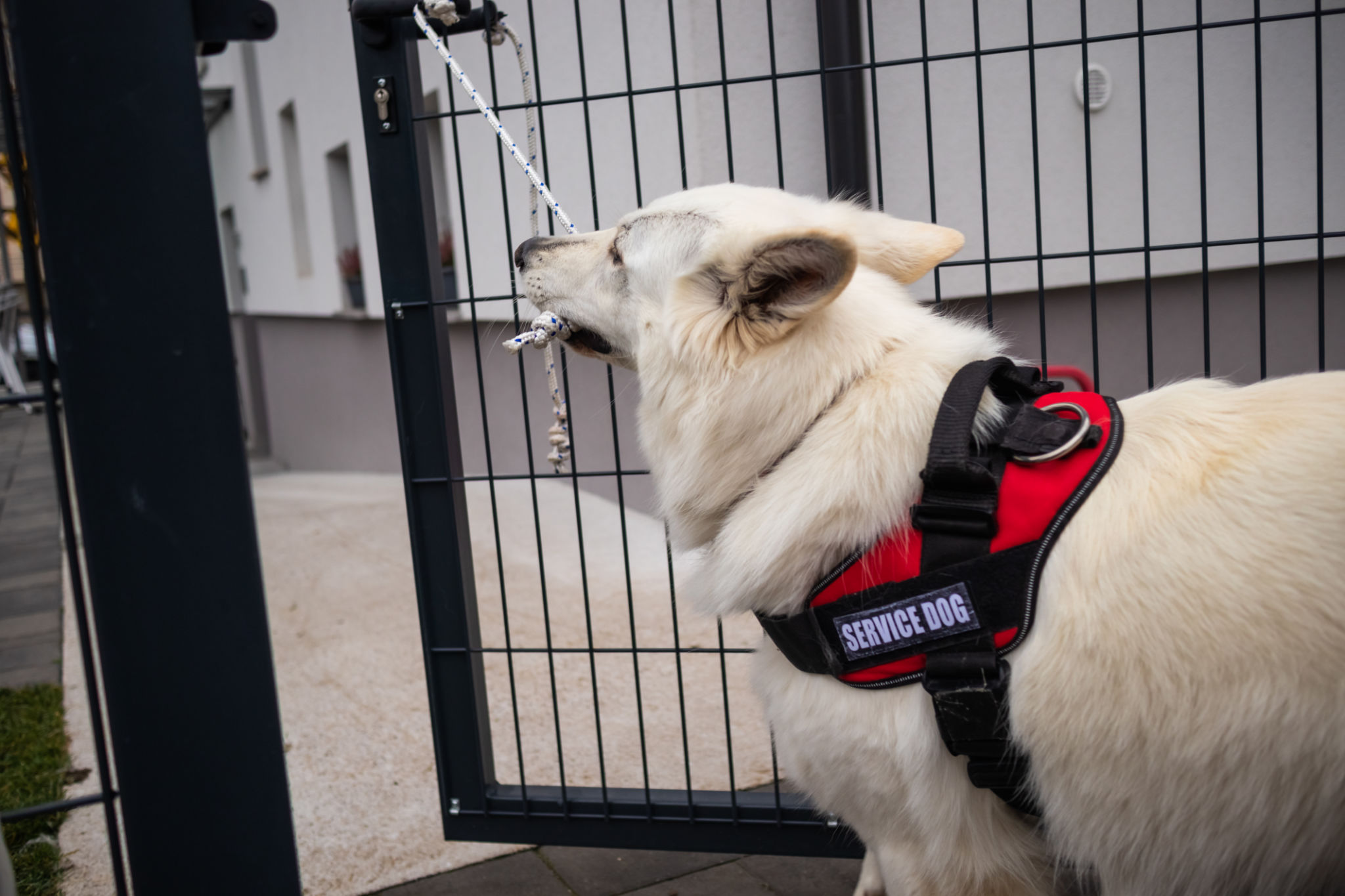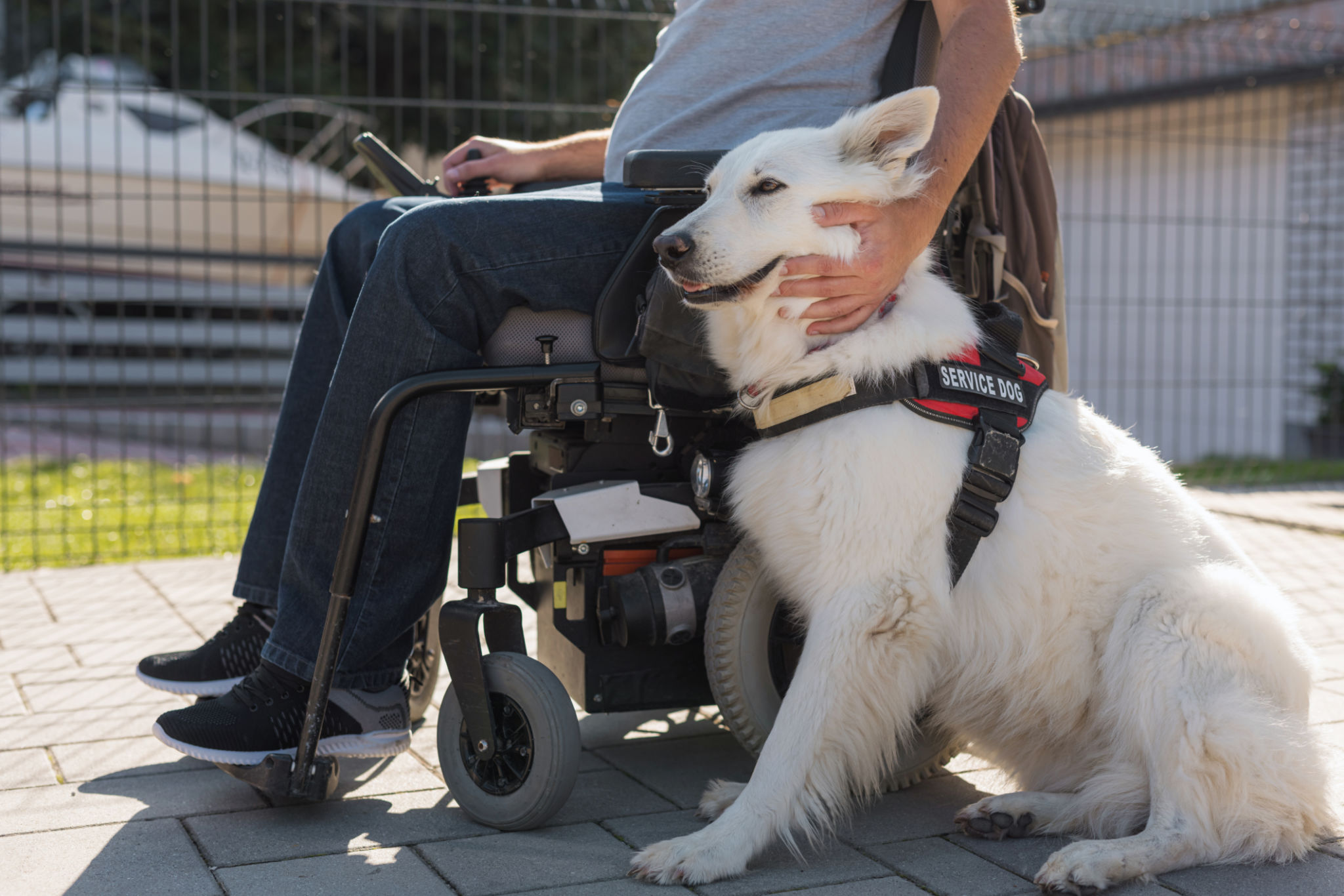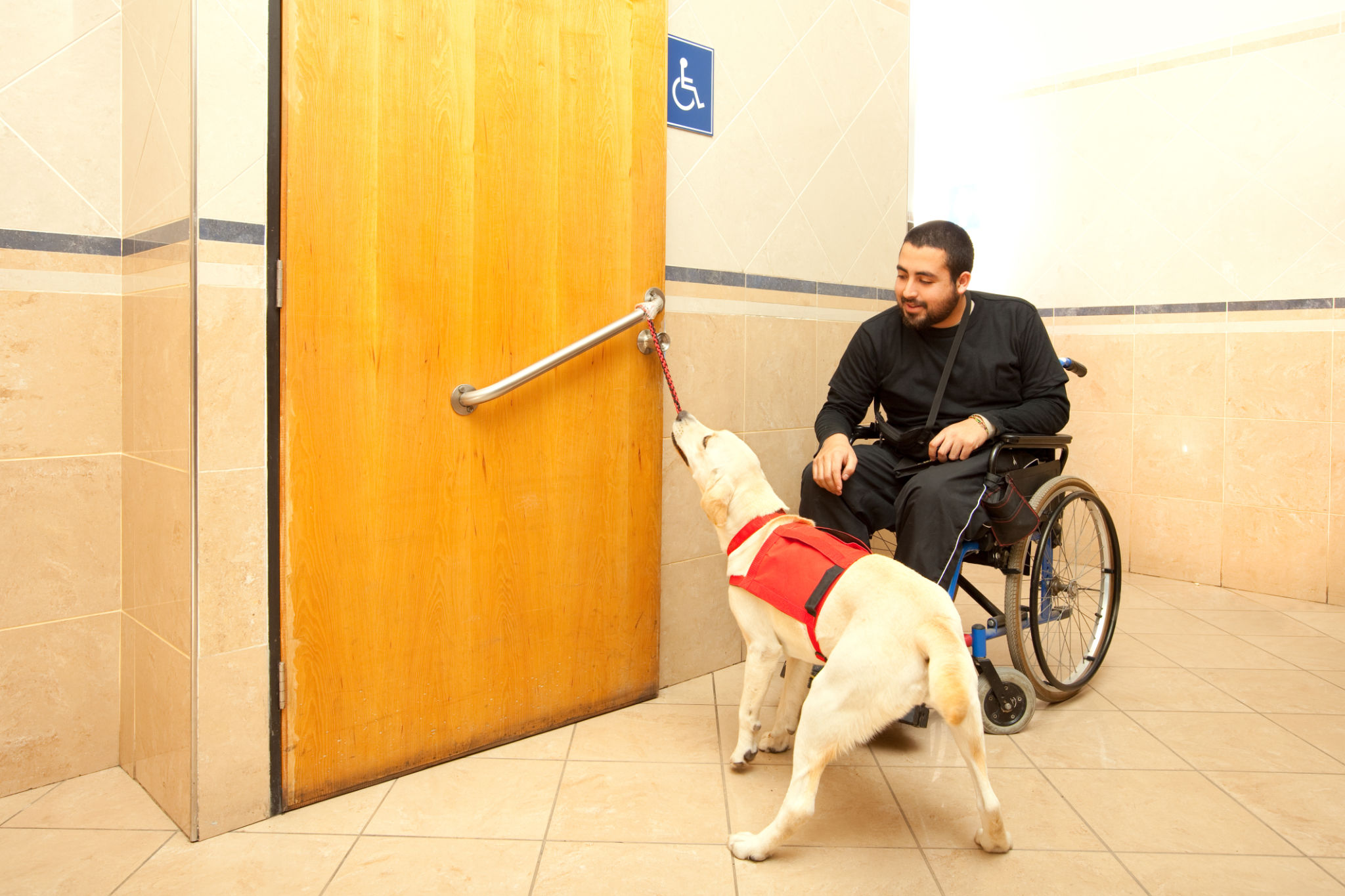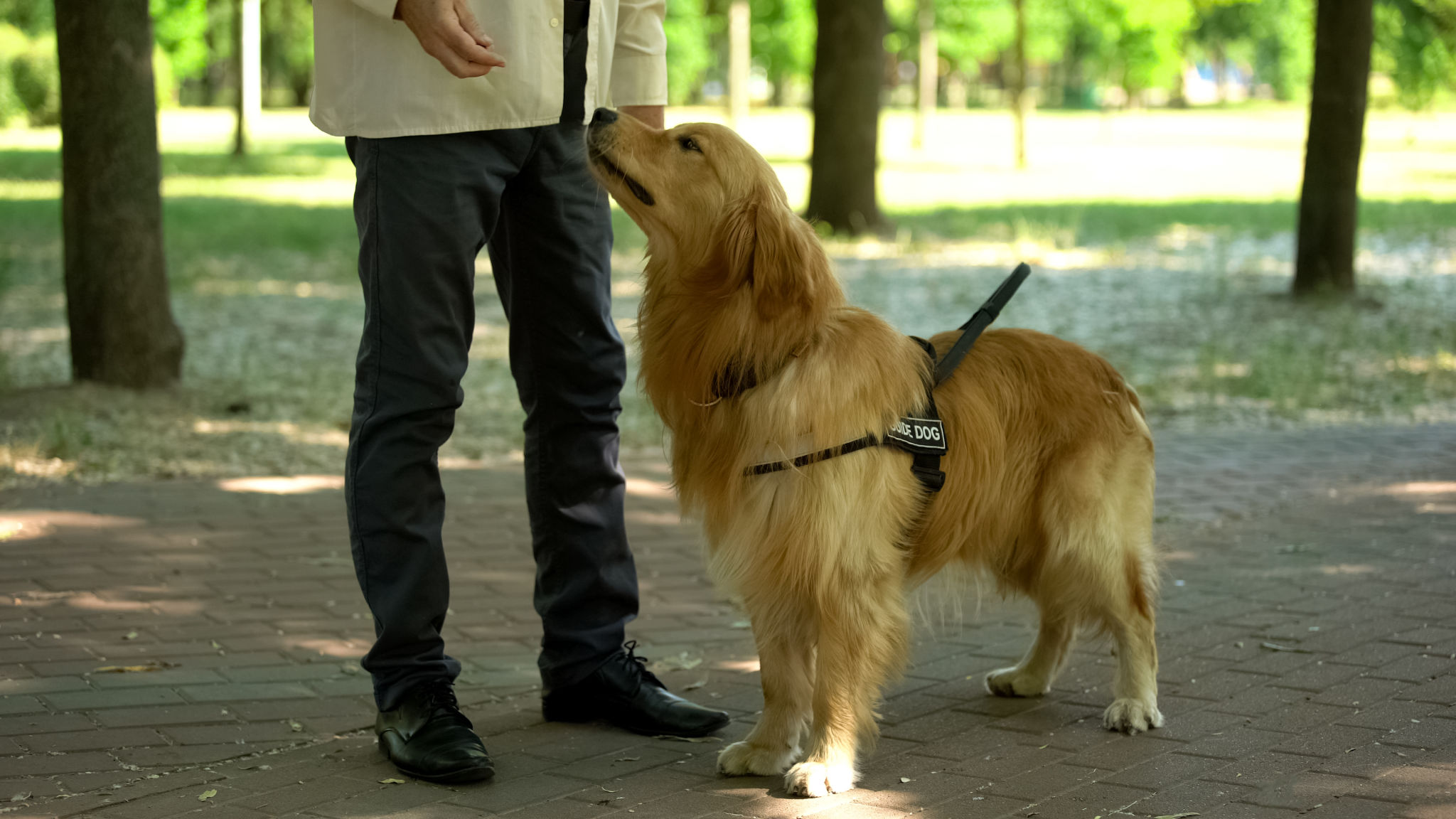The Essentials of Service Dog Training
DR
Service Dog Training Classes Near Me
Finding the right service dog training classes near you can be a game-changer. These classes are essential for training dogs to assist individuals with disabilities. They offer a range of options, from in-person sessions to intensive camps.
Service dogs are more than pets; they are trained to perform specific tasks. This training can take months or even years, depending on the dog's needs.
Choosing a reputable program with certified trainers is crucial. It ensures your dog receives the best training possible.
Whether you're looking for PTSD dog training or general service dog training, there are options available. Explore the possibilities and find the perfect fit for you and your dog.
What Are Service Dog Training Classes?
Service dog training classes are essential for teaching dogs to assist individuals with disabilities. These classes focus on developing skills that enable dogs to perform specific tasks tailored to the handler's needs.
Dogs learn basic obedience first, which lays the foundation for advanced training. Afterward, they master public access skills, ensuring they behave appropriately in diverse settings.
The classes are taught by experienced trainers who are skilled in animal behavior. They work closely with both the dog and handler to build a strong partnership.
Here's what service dog training generally includes:
Basic obedience commands
Public access training
Task-specific skills
Choosing the right class can greatly impact the dog's ability to assist its handler effectively. Taking time to find the best fit is vital. Investing in a well-structured training program enhances the dog’s capabilities and enriches the handler’s daily life.

Types of Service Dog Training Programs
Service dog training is not one-size-fits-all. Various programs cater to specific needs and preferences. One can select from in-person classes, intensive training camps, or online courses.
In-person classes offer direct interaction with skilled trainers. This hands-on approach is invaluable for immediate feedback. It also allows for collaboration between dogs, owners, and trainers in a controlled environment.
Camps provide intensive training sessions. They are ideal for those who prefer a focused setting. Camps often include residential options, promoting a deeper bond between dog and handler.
Online programs are convenient for those with busy schedules. They combine flexibility with expert guidance. Many offer hybrid models, merging virtual lessons with occasional in-person sessions.
Key program features to consider:
Personalized training plans
Certified trainers
Flexible formats
These options ensure everyone can find the best fit for their circumstances. Tailored programs maximize the dog’s potential and enhance the handler’s quality of life.

In-Person Service Dog Training Classes Near Me
In-person classes provide a structured environment for dog and handler. They engage with professional trainers in real-time, offering immediate support.
These classes are often held at local dog training centers. They focus on building basic obedience and task-specific skills. The interaction with other dogs boosts socialization.
Here's what you might find in a class:
Group activities to enhance teamwork
Obedience drills for skill building
One-on-one feedback with trainers
Choosing local classes ensures easy accessibility. Proximity helps maintain regular attendance, crucial for progress. It allows for consistent practice, reinforcing skills learned during sessions.
Service Dog Training Camp: Intensive Options
Training camps offer intensive service dog programs. These camps usually span several weeks. The focus is on advanced skills and uninterrupted training.
Camps provide a focused, immersive environment. They often feature residential stays, deepening the bond between handler and dog. Trainers customize exercises to address specific needs.
A typical camp includes:
Daily skill sessions
Exercises in diverse environments
Personalized feedback and adjustments
These camps are an ideal choice for those seeking rapid progress. Handlers receive direct, concentrated expertise. The camp structure accelerates skill acquisition, making it an effective training method.

Online and Hybrid Service Dog Training
Online training offers unmatched convenience. It's perfect for handlers with time constraints. These courses provide flexibility while still imparting essential skills.
Hybrid programs blend online coursework with in-person sessions. They offer the best of both worlds. Handlers can learn at their own pace yet benefit from direct trainer interactions.
Common features of online and hybrid training:
Video tutorials
Virtual Q&A sessions
Optional live workshops
These programs cater to various needs. They maintain training quality despite remote delivery. Handlers and dogs enjoy flexible, personalized learning experiences without compromising effectiveness.
Specialized Service Dog Training: PTSD and More
Service dogs are trained for various roles, including helping individuals with PTSD. These dogs provide critical support by interrupting anxiety attacks. They also remind handlers to take medication or offer comfort during distressing moments.
Specialized programs are designed for specific conditions. Trainers work to tailor tasks to each handler’s needs. This type of training often includes unique exercises that mimic real-life scenarios.
The focus for PTSD service dogs is often on emotional support. However, they also learn practical tasks. These might include fetching items or responding to cues during heightened stress.
Here are some capabilities of PTSD service dogs:
Identifying anxiety triggers
Providing deep pressure therapy
Offering a calming presence
Finding the right program is crucial for effective support. It enhances the life of both handler and dog. These specialized skills foster a sense of security and independence.
What to Look for in a Service Dog Training Program

Choosing the right program for service dog training is crucial. Start by verifying the credentials of the trainers involved. Certified trainers often possess extensive experience and knowledge in dog behavior and training techniques.
Pay close attention to the training methods used. Programs that emphasize positive reinforcement and reward-based training usually yield better results. This approach ensures that the training process remains enjoyable and effective for your dog.
Consider the course structure and length. Different programs offer varied timelines and intensities. Some might provide flexible schedules to suit your lifestyle, while others follow a strict regimen.
Evaluate the support system offered post-training. Many reputable programs include follow-up sessions and ongoing support for dog handlers. This ensures that your service dog continues to perform tasks effectively and remains well-adjusted.
Essential elements in a service dog training program:
Certified trainers
Positive reinforcement techniques
Comprehensive support system
Costs, Financial Aid, and Scholarships
Service dog training can be costly, often ranging from a few thousand to tens of thousands of dollars. Several factors influence these costs, including the program's duration, training location, and specific services offered.
Many programs offer financial aid options to alleviate this burden. Scholarships and payment plans are available to make training accessible. Organizations might also collaborate with charities or sponsors to help cover expenses. It's essential to explore these options to find the right fit for your budget.
Financial aid considerations:
Scholarships
Payment plans
Collaborations with charities
Service Dog Certification and Legal Considerations
Service dog certification is not legally required in the United States. However, some programs may offer certifications to verify training completion. It's important to remember that the Americans with Disabilities Act (ADA) governs the rights of service dog handlers.
Legal knowledge is crucial for navigating public spaces with your service dog. Understand your rights and obligations to prevent any potential issues. Always familiarize yourself with local laws and any specific regulations in your area.
Key legal considerations:
ADA guidelines
Local laws and regulations
Certification verification requirements
Frequently Asked Questions About Service Dog Training
Service dog training can raise many questions, especially for first-time handlers. It's important to address these concerns early. Understanding the process can help set realistic expectations.
Common questions include the duration of training and the cost involved. People also ask about the tasks a service dog can learn. Another frequent concern is how to maintain training over time.
Here are some frequently asked questions:
How long does service dog training take?
What is the typical cost?
What tasks can my service dog perform?
How can I maintain my dog's skills?

Conclusion: Empowering Independence ThroughService Dog Training
Service dog training offers more than just task learning—it transforms lives. It equips handlers with increased independence and confidence.
These training programs not only build strong bonds between dogs and handlers but also enhance daily life. Investing in a service dog program could be a life-changing step towards greater independence and peace of mind.

